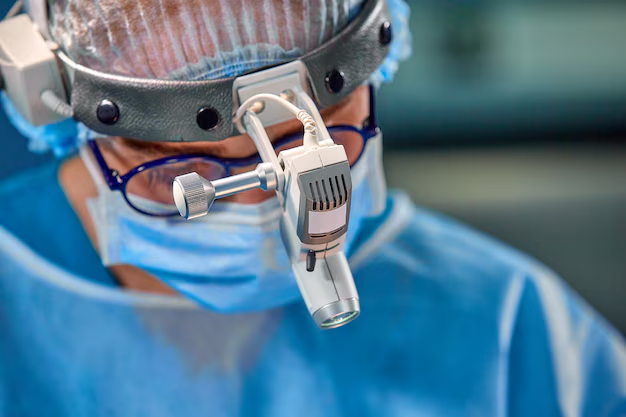Your Guide to Can You Wear Contacts After Cataract Surgery
What You Get:
Free Guide
Free, helpful information about Cataract FAQ and related Can You Wear Contacts After Cataract Surgery topics.
Helpful Information
Get clear and easy-to-understand details about Can You Wear Contacts After Cataract Surgery topics and resources.
Personalized Offers
Answer a few optional questions to receive offers or information related to Cataract FAQ. The survey is optional and not required to access your free guide.
Exploring Your Options: Can You Wear Contacts After Cataract Surgery?
Cataract surgery marks a transformative moment for many patients seeking sharper and clearer vision. However, with clearer vision comes new questions, and a common inquiry is: Can you wear contacts after cataract surgery? The road to recovery involves understanding your options, managing expectations, and, most importantly, finding a solution that best supports your lifestyle and comfort. Let’s navigate through this topic to shed light on what post-cataract life can mean for contact lens wearers.
👀 Understanding Cataract Surgery and Its Aftermath
Cataracts involve the clouding of the eye's natural lens, typically due to aging. Cataract surgery entails removing this cloudy lens and replacing it with an artificial intraocular lens (IOL). The surgery itself is generally safe and effective, paving the way for improved vision. However, one question many patients have is whether they can resume wearing contacts afterward and how this choice might impact their post-operative vision.
1. Immediate Post-Surgery Considerations
After cataract surgery, your eye goes through a healing period. During the initial recovery phase, wearing contact lenses may not be feasible or recommended due to sensitivity and healing needs. Here’s why:
- Healing Process: It's vital to allow your eye to heal adequately. This period can differ, but practitioners commonly suggest several weeks before considering contacts.
- Sensitivity: Post-surgery eyes can be more sensitive to foreign objects, including contact lenses, as the eye’s surface adjusts after surgery.
2. Transitioning Back to Contact Lenses
Once your eye has healed sufficiently, for some individuals, resuming contact lens wear might be an option. However, there are several factors to consider:
Type of Intraocular Lens (IOL) Implanted
- Monofocal IOLs: These lenses correct vision at one distance. Some individuals may require glasses or contacts to supplement distance or near vision, depending on the correction needed.
- Multifocal or Accommodative IOLs: These allow for clearer vision over a range of distances and may reduce the need for additional vision correction, though adjustments or contacts might still be necessary in some cases.
Purpose and Preferences
- For Clarity: If post-surgery vision isn't meeting all daily needs, contacts might provide additional clarity in some situations.
- Cosmetic Considerations: Some individuals may simply prefer contacts for their appearance or comfort over glasses.
3. Custom Contact Lenses Post-Surgery
For those considering contacts after cataract surgery, custom contact lenses are often tailored to specific needs:
- Specialty Lenses: Options like multifocal contacts might complement the corrective range of IOLs.
- Toric Lenses: These cater to astigmatism correction, which can coexist with or arise after surgery.
4. Consulting with Your Eye Care Provider
Regular check-ups after surgery are essential to discuss the suitability of contact lenses for your situation. Eye care professionals will consider factors like:
- Eye Health Assessment: Your optometrist or ophthalmologist will check the eye's condition and whether it's ready to accommodate contact lenses.
- Vision Evaluation: They’ll evaluate how your vision has stabilized post-surgery to tailor the right contact lens prescription.
🤔 Options for Managing Vision Post-Cataract Surgery
Considering alternatives for managing your vision needs after cataract surgery is crucial. Here are some key considerations:
1. Eyeglasses
While contacts are an option, glasses remain a popular alternative for many people:
- Reading Glasses: Particularly for patients with monofocal IOLs, reading glasses can assist with close-up tasks.
- Progressive Lenses: These offer a seamless transition for activities requiring varying focal lengths, from reading to driving.
2. Contact Lenses
For those committed to contact lenses after surgery, keep these tips in mind:
- Regular Cleaning and Care: Proper hygiene is paramount to prevent eye infections.
- Fit and Comfort: Work with your provider to ensure lenses fit well and feel comfortable on the eye post-healing.
3. Surgical Enhancements
In selected cases, further surgical options may address specific vision needs post-cataract surgery:
- Laser Adjustments: Some patients may opt for laser procedures to refine eye shape or reduce dependency on additional vision aids.
4. Lifestyle Adjustments
Adjusting to changes in vision management may also involve:
- Routine Adjustments: Establish new routines or tricks for managing eyeglasses or contact lenses more efficiently.
- Activity Management: Adjusting activities involving prolonged periods of focus or shifting visual range.
📝 Key Takeaways and Practical Tips
Navigating vision care post-cataract surgery can be intricate but knowing your options enables informed decision-making. Here’s a concise summary to guide you:
- ✅ Healing First: Prioritize comprehensive healing before resuming contact lens use.
- 👓 Vision Assessment: Regular eye checks will ensure your vision correction matches any shifts post-surgery.
- 🔍 Consider Alternatives: Explore all options like custom contact lenses or specialty glasses.
- 👥 Professional Guidance: Stay in close consultation with your eye care provider to customize solutions that suit your lifestyle.
- 🛡️ Maintain Hygiene: Keep contacts clean to protect your eyes from infection.
Integrating these pointers can enhance your comfort and vision quality after cataract surgery, allowing you to manage your unique vision needs seamlessly.
Choosing whether to wear contacts post-cataract surgery is a personal decision guided by various factors and preferences. By understanding these elements, you can make confident, informed choices about maintaining visual clarity and comfort in your daily life.
What You Get:
Free Cataract FAQ Guide
Free, helpful information about Can You Wear Contacts After Cataract Surgery and related resources.

Helpful Information
Get clear, easy-to-understand details about Can You Wear Contacts After Cataract Surgery topics.

Optional Personalized Offers
Answer a few optional questions to see offers or information related to Cataract FAQ. Participation is not required to get your free guide.


